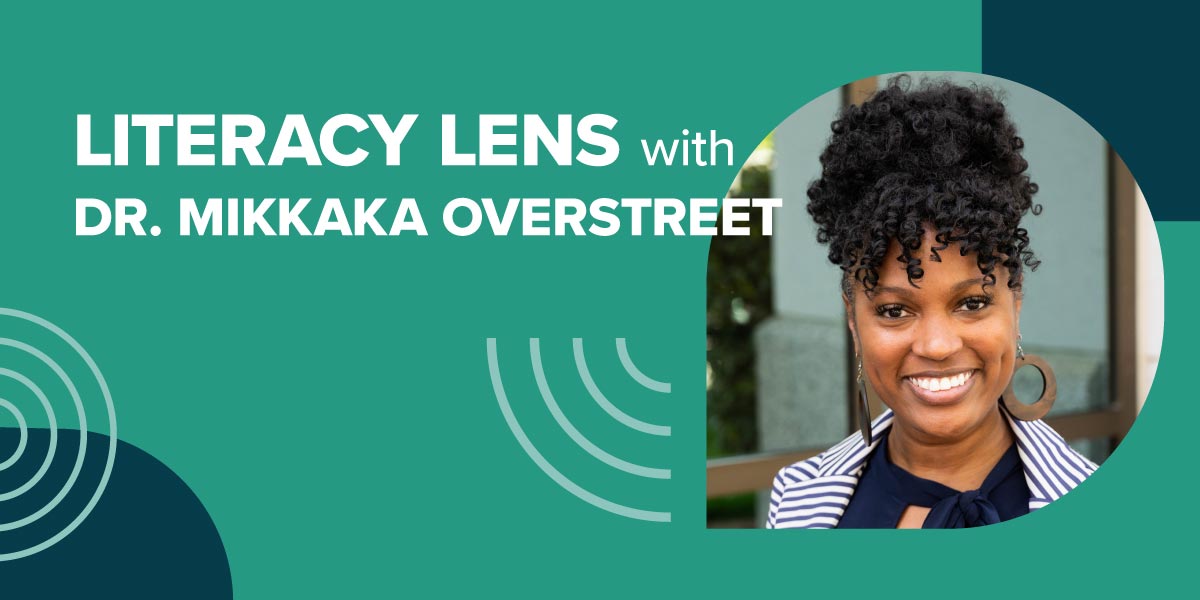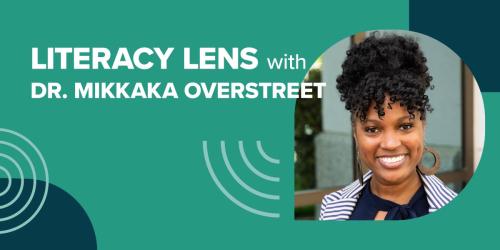Literacy Lens: Literacy Leadership for Positive Change

Happy fall, y’all! Here in North Carolina, the weather is finally growing cooler, pesky insects are disappearing, and my fire pit is ready to go. Autumn always makes me think of change—endings and new beginnings.
Thus, I believe it’s the perfect time for us to discuss a challenging topic: changing instructional practice. You have probably heard a lot about the science of reading recently. It’s likely that your state has enacted science of reading implementation-related legislation or that your district has been investing in relevant professional development, new curricula, and materials.
It may all seem confusing and even frightening to you. Change can be hard, especially when you’ve been doing things a certain way for many years. It is upsetting to think that we haven’t been doing our jobs correctly or that we may have caused harm to the children in our care. However, as educators, we are committed to being lifelong learners, which sometimes means reckoning with learning new ways of teaching.
The important thing is that we grow and that when we know better, we do better. We’ve known for many years that our reading instruction didn’t meet the needs of all students. The 2019 NAEP reading scores indicated that student progress had declined or stagnated almost everywhere, and the more recent tests have been just as concerning.
As a result, many states have invested a great deal of money in the science of reading training for teachers. Unfortunately, there has been much less investment in preparing school leaders to support teachers in implementation. This month, I’m going to provide context for the recent shift in literacy education and elucidate the importance of supporting principals in implementing these shifts.
I won’t be providing a full explanation of the science of reading, as it’s been explained well by many others. Readers who are unfamiliar with the concept will want to explore Scarborough’s reading rope and the simple view of reading. These theoretical underpinnings are crucial to understanding the research behind the science of reading.
Leadership Matters
After teachers, school leaders have the most impact on student outcomes. According to a 2021 report by the Wallace Foundation, principal effectiveness has a deeper and broader impact on student achievement than previously thought. After synthesizing two decades of research, the team found that replacing a below-average elementary school principal with an above-average principal would translate into an increase of 2.7 months of reading per student, per year. Furthermore, this change in leadership would have a greater impact than about half of the reading interventions typically used.
The aforementioned report also highlights three overlapping areas of expertise that contribute to principal effectiveness: instruction, people, and the organization. As we consider this massive shift toward evidence-based literacy instruction, we cannot underestimate the role of school leaders. For true change to occur, principals must understand the science of reading, how to support teachers in implementing the science of reading, and the process of enacting organizational change.
To accomplish this, principals need high-quality professional learning opportunities. According to a 2022 Wallace report, one way to “foster high-quality principal learning” is to fund statewide efforts, such as leadership academies, paid internships and mentor training. If we are going to improve literacy outcomes for students in the United States, we must invest in our principals.
Lessons Learned: Education Northwest and the Alaska Department of Education and Early Development (DEED)
Overhauling reading instruction requires systemic changes. This means that state departments, district-level leaders and specialists, school leaders, and all school staff members need professional learning and support. At Education Northwest, we’re privileged to support educators in this work.
In Alaska, the state department wisely chose to offer training for teachers and leaders on concurrent tracks and to bring in Education Northwest to support school leaders. We partnered with DEED to offer the Alaska Science of Reading Leadership Academy, which addressed three professional learning goals for school leaders in the area of reading instruction:
- Develop school leaders’ understanding of the science of reading, its application within Alaska Native culture, and how to support teachers with a variety of literacy leadership strategies in their unique school setting.
- Develop school leaders’ data analysis skills through multiple measures, including outcomes and primary drivers, and accelerate their growth in using data to make decisions
- Provide a connected and supportive environment in which participants openly and honestly reflect on their practice and collaborate to solve problems of practice
The Academy consisted of eight one-hour webinar sessions and two one-hour community of learning sessions. EdNW delivered training sessions to two cohorts during the summer of 2022. The cohort training sessions were recorded and have been converted into a series of online learning modules.
In their responses to post-academy surveys, leaders indicated their appreciation for the professional learning opportunity. The most prevalent themes in these responses (with example comments) were:
Collaboration with similarly minded educators. “The idea of educators from all over the state getting on the same page, using the same language. It's nice to know that I'm on the right track.” (Cohort 2)
Building content knowledge around literacy. “It was a great introduction for leading the push for the science of reading in my school building. It gave me vital background information”. (Cohort 1)
Alaska’s commitment to growing leaders’ capacity to support their educators in implementing evidence-based instruction has built a strong foundation for the state’s work to align their literacy instruction with the science of reading and, ultimately, to improve literacy attainment for all students.
Call to Action: Build Capacity of School Leaders to Effectively Implement Change
Change doesn’t have to be scary. It is a good and necessary part of life and of learning. With strong, supported leadership, the shift toward equitable and excellent literacy instruction for all students can be accomplished. Explore the resources below for more guidance and information.
How Principals Affect Students and Schools: A Systematic Synthesis of Two Decades of Research
An effective principal’s impact is stronger and broader than previously thought, making it “difficult to envision” a higher return on investment in K–12 education than the cultivation of high-quality school leadership, according to this research synthesis.
Developing Effective Principals: What Kind of Learning Matters?
High-quality principal development is linked to better outcomes for principals, teachers, and students, but access to it varies by state and school poverty levels. Policy change can help.
Literacy Leads, Setting Follows – Advice for Grades 1–3 Literacy Leaders in Disrupted Environments
This guide, developed by EdNW in partnership with the National Comprehensive Center, is the first in a series of online multimedia resources that provide advice for literacy leadership teams.
A Powerful Change Strategy
Jacqueline Raphael highlights a set of best practices that emerging networks can follow and makes a case for using an experienced intermediary organization to serve as the network's “backbone.”
Literacy Lens with Dr. Mikkaka Overstreet is a monthly blog series that offers insights on literacy and equity, along with tools and resources aimed at providing high- quality, evidence-based, and equitable literacy education.



